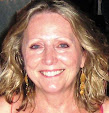With all the news about the coronavirus, it’s important to be
informed, take preventive measures and be prepared. The CDC (Center for Disease
Control and Prevention) has urged everyone to take precautions and prepare for an
inevitable outbreak in the United States. CDC has taken a containment strategy
that has been successful to date, so far there have been 53 cases diagnosed in
the US on the west coast, but the spread will require organized interventions
in local communities.
Here is important information about the coronavirus from the
CDC:
Symptoms include: fever, cough, shortness of
breath. If you have traveled to China or been in close contact with someone
with the virus and have these symptoms, call ahead and let your healthcare
professional know you may have been exposed to the virus before you go to see
them, wear a facemask to prevent others from getting ill.
Preventive
Measures include: Avoid close contact with
people who are sick; avoid touching your eyes, nose, and mouth; stay home when
you are sick; cover your cough or sneeze with a tissue, then throw the tissue
in the trash; clean and disinfect frequently touched objects and surfaces using
a regular household cleaning spray or wipe; wear a facemask if you show
symptoms of the virus to prevent the spread of the disease; wash your hands
often with soap and water for at least 20 seconds (or use hand sanitizer with
at least 60% alcohol) especially after going to the bathroom, before eating,
after blowing your nose, coughing, or sneezing.
The CDC recommended that we all should be prepared –
including our community. We should start
thinking about measures needed to prevent the spread of the virus in our homes,
workplaces and places where people gather.
At Beninati Associates, we will be implementing preventive
measures to protect our clients and customers, we will provide hand sanitizers,
protective gloves, tissues, cleaning spray to clean surfaces, and facemasks
where appropriate. We’re not alarmed, nor
are we alarmists, but we believe in being informed and prepared. And we believe
that communicating and planning as a community is the best way to keep us all
safer from the virus. We hope you will start thinking about what measures you should
take for yourselves, families and co-workers and put your concerns to work by
preparing!
Sources: CDC,
Coronavirus Update, Transcript
February 25, 2020, cdc.gov; Wall Street Journal, Virus Fears Bruise
World Stock, February 25, 2020, p.1; Newsday, February 26, 2020, p.
A4.



